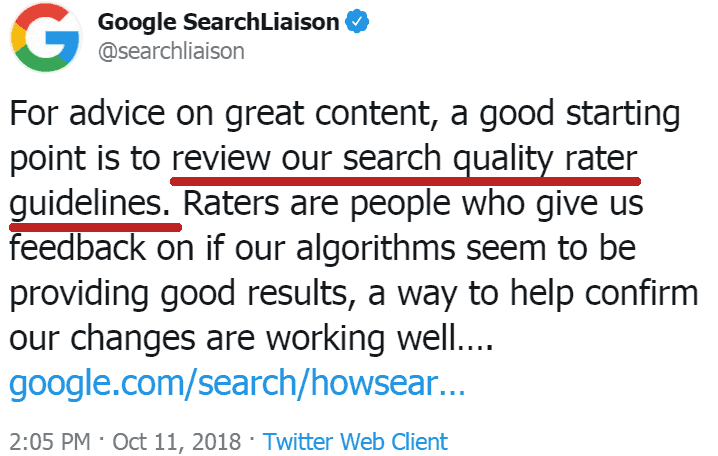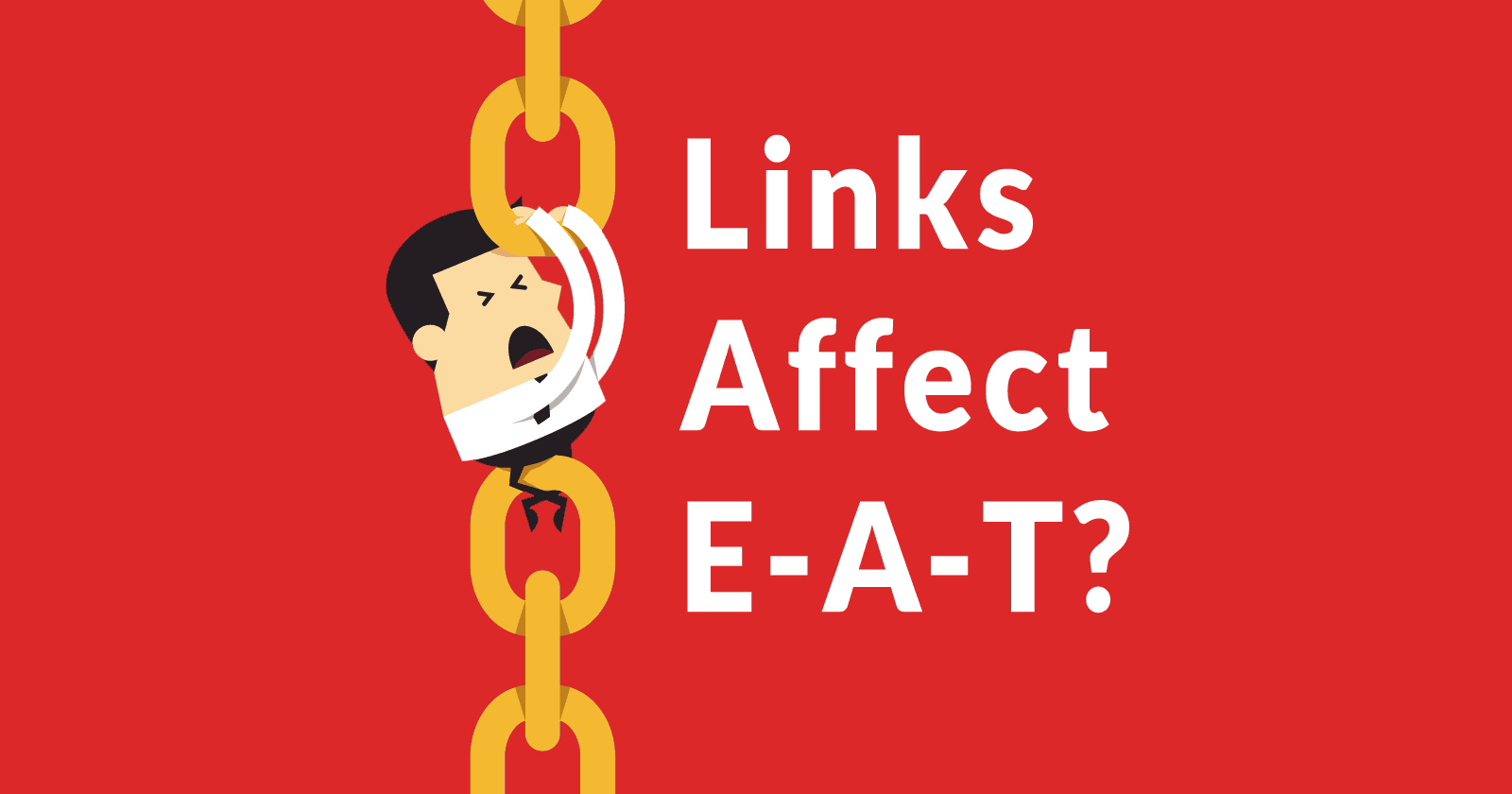Google’s John Mueller was asked about the value of inbound links for establishing a website’s Expertise, Authoritativeness and Trustworthiness (E-A-T). E-A-T has been encouraged by Googlers as something web publishers should cultivate. Could links be a way to demonstrate to Google that a site is expert, authoritative and trustworthy?
Trustworthiness Ranking Signals
There is an SEO trend that providing information about content authors, particularly in Your Money or Your Life topics like health and finance, is important.
This trend originated from reading Google’s Quality Raters Guidelines. SEOs and publishers read the guidelines in order to discover ways to rank better. The reason SEOs and publishers seek that information in Google’s Quality Raters Guidelines is because it was recommended by Google itself.
 Google’s SearchLiaison recommended the quality raters guidelines for tips on how to create great content. He never said it would provide hints about ranking signals.
Google’s SearchLiaison recommended the quality raters guidelines for tips on how to create great content. He never said it would provide hints about ranking signals.That tweet recommends Google’s quality raters guidelines for tips on how to make great content. He never recommended the document as way to discover Google ranking signals.
Are Authorship Signals Important for Ranking?
There are two problems with E-A-T authorship signals.
- It is easy to invent that an author is an expert (such as a doctor).
- There are no patents or research papers that specifically outline an algorithm that searches for on-page authentication of the authority and expertise of an article author.
The first point exposes how open to manipulation on-page author credibility signals are.
The second point shows there is close to zero likelihood that such a ranking factor exists because no university or search engine has undertake to study such an unreliable on-page ranking factor as on-page ranking credentials.
Here is the question:
“With E-A-T, how much value do external links carry? Surely providing that you’re an expert on page is not sufficient.
What else matters? Mentions or external links from relevant sites?”
It’s a reasonable question. If on-page factors are unreliable, that must point to off-page factors such as links or mentions as factors that could vouch for a web page’s expertise, authoritativeness and trustworthiness.
Links have traditionally filled that role in Google’s algorithm.
Google’s John Mueller answered:
“We don’t have any explicit information with regards to what you need to do there.”
There’s no need to read between the lines. It means that John declines to answer the question. He didn’t say yes and he didn’t say no. He refused to answer the question.
On-page Author Signals Aren’t Ranking Factors?
John continued his answer, providing useful information that that confirm that SEO practices such as on-page author signals are not direct ranking factors.
This is what John Mueller said:
“A lot of this comes from the Google Raters Guidelines which are not direct search results or search ranking factors.
But rather this is what we give folks when they evaluate the quality of our search results.”
That’s an explanation of how the concept of E-A-T is specific to rating search results but is not related to the search results themselves or search ranking factors.
That’s an important distinction to be aware of in regard to the concept of E-A-T.
E-A-T and Links
Mueller then concluded his answer with a statement from the point of view of the quality raters guideline.
This is is what he said:
“So from that point of view it’s not that you would need to… gain this through links or anything like that.
But rather this is something that normal people look at when they review the quality of the search results and which perhaps normal users would kind of think about as well as: Can I trust this website?”
He’s talking about links in the context of reviewing the quality of the search results. And of course, links have nothing to do with that.
Mueller continued:
“So from that point of view it’s not a matter of like you need to put these five words on your website and then get a link from this other site. That’s definitely not the case.
But more a matter of really like how you present your website overall and how users would perceive that.”
Google Guidance About E-A-T
The only guidance Mueller offers about E-A-T is that it’s something used by quality raters guidelines and that it’s not a ranking factor.
As for how to obtain expertise, authoritativeness and trustworthiness, this is all Mueller had to offer:
“We don’t have any explicit information with regards to what you need to do there.”
I’m fine with his answer. I believe it’s important that he underlined that the concept of E-A-T is directly tied to the quality raters.
Expertise, authority and trustworthiness are important qualities for a web page to have. They are the qualities of a web pages that Google aspires to rank.
But those aren’t actual metrics or ranking factors. There is no evidence or hint of evidence of such a metric. They are simply qualities of a high quality web page. So it’s good to use that as inspiration for creating web pages.
Watch the Webmaster Hangout here:
https://youtu.be/acr3i9UCCZ0?t=956





